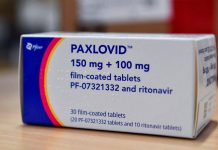Experts believe that open communication between patients and doctors is important and to an extent where patients can request their doctors to write a prescription for generic drugs rather than their brand-name counterparts.
A 2013 study found that most doctors may be misinterpreting patients’ wishes and acting against their best interest when it comes to prescriptions. And another study, published in JAMA Internal Medicine, found that there is a good chance you have been throwing money away by mentioning brand-name drugs at your doctor’s office, according to Best Life, a news outlet.
The study researchers wrote, “Approximately four of 10 physicians report that they sometimes or often prescribe a brand-name drug to a patient when a generic is available because the patient wanted it.”
Most patients are not aware of the generic equivalents of the brand-name medicines that they have been taking, which could help them save money on their prescriptions.
The researchers said, “Pharmaceutical companies aim to stimulate patients’ requests for brand-name medications and increase the likelihood physicians will honor such requests.” Unfortunately for unwitting consumers, this practice has major financial implications. Even if you’re insured, the cost hike can send your co-pay skyrocketing.
The study’s author Dr. Eric Campbell of Harvard Medical School says the prevalence of brand-name drugs is “a huge source of wasteful spending that can be prevented.”
The Food and Drug Administration (FDA) says generic drugs are 80% to 85% cheaper than their brand-name counterparts are.
Some patients worry about asking for a generic drug because they believe they may receive a low-quality or less-regulated product. However, that is not the case, as the FDA monitors all manufacturing facilities that produce generic drugs.
Generic medicines are chemically identical to their brand-name counterparts. However, they may differ in packaging, presentation, non-active ingredients, and pill shape, color, or size. The FDA makes sure that you get a generic medicine that you can receive the same therapeutic effect as its brand-name drug.
Dr. Campbell and his team found that 37% of physicians will prescribe a brand-name drug when a patient asks for it specifically.
“Doctors are often evaluated on how satisfied their patients are—it’s easier to say yes than risk a negative evaluation,” the researchers wrote. “They tend to have packed schedules, and it takes less time to write the brand-name prescription than it does to explain why the generic will do just fine. And some are influenced, consciously or not, by their interactions with drug company representatives.”
If your doctor has already written a brand-name prescription, you are not obligated to fill it with the brand-name version. Instead, you can go for a cheaper generic alternative.
The researchers said, “In most states, a doctor has to write ‘brand only’ on the prescription if he or she does not want you to have a generic.” Nevertheless, you can check with your doctor or pharmacist to know how you can safely save on your prescriptions.























